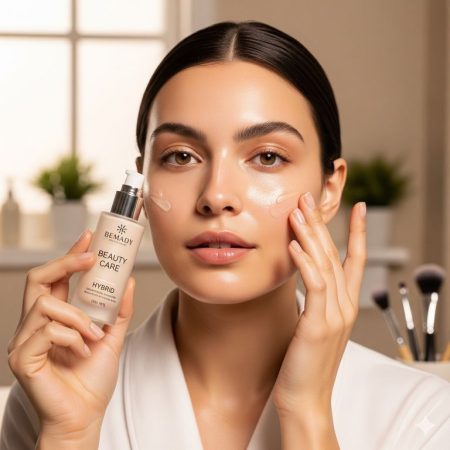You may not realize it, but acne scars can be a huge source of embarrassment for people with acne. Acne or pimple breakouts are known to be one of the most common skin issues in North America, and acne scars are one of the most frustrating side effects. Understanding the causes of acne—such as hormonal imbalances, poor skincare routines, diet, and stress—is essential because many sources contribute to acne scarring. So it’s important to know what these factors are if you want to stop them from happening again..
As this happens, people tend to look for solutions to get rid of the scars ASAP. Luckily, there are acne scar removal treatments that people can try. You can consult with a professional if you want to know more about these treatments.
This article will cover up some information about acne scars, and we will also go over some tips on how to treat acne scars as well as preventing new ones from occurring.
First, what are acne scars?
What are Acne Scars
Acne scars are skin lesions that develop after an individual has suffered from some form of acne. It can happen when the pores in the skin become clogged with oil, dead skin cells, and bacteria. When this happens, the sebaceous glands (oil-producing glands on your skin) produce more oil than normal to compensate for the blocked pore. This results in what we call “acne” or pimples which usually look like whiteheads or blackheads.
How Acne Scars Develops
Acne develops when an individual’s pores become clogged with oil, dead skin cells and bacteria. This can happen in several ways. First of all, it could be that your face is producing more oil than normal because of hormones or other reasons that are not understood. The extra oil then gets caught in the pores, which cause a build-up of dirt and bacteria to accumulate within the pore itself. This results in acne breakouts which are usually whiteheads or blackheads.
When acne develops, scars can tend to happen. Acne scars can develop when the skin’s pores become damaged by bacteria. Acne scars can also develop when inflammation within the skin happens after an acne lesion has healed. If an acne lesion is particularly deep, then it will usually scar more than if it was not as deep or severe.
Contributing Factors to Acne Development
Many factors cause acne scars to form. Some of these factors can be prevented while others cannot. Here are some major causes of acne scarring:
Genetics
When a person has close family members who have suffered from severe cases of acne in the past, chances are they will also suffer from it in their teenage years (if they haven’t already). This doesn’t mean that if your parents have bad skin that you will too. However, there is just a higher chance of developing acne due to genetic reasons.
Hormonal imbalance
As mentioned above, high levels of oil can be caused by hormonal imbalance, which often happens when one is in their teenage years and young adulthood. During these periods, the sebaceous glands produce more oil than normal, resulting in clogged pores and the possible development of acne lesions (like whiteheads or blackheads).
The sebaceous glands stop producing excess amounts of oil after individuals turn 20 years old, and this makes acne less likely to develop (at least for most people).
Poor hygiene
Individuals who don’t wash their face regularly are at a greater risk of developing acne because it causes a build-up of oil, bacteria, and dead cells, which leads to clogged pores. Keeping the face clean is an important step in preventing acne from developing or resurfacing after it has healed up.
Poor diet
A poor diet filled with candy, chocolate, caffeine, and foods high in sugar content can cause acne breakouts because these types of food have been known to increase levels of hormones that trigger sebaceous glands into overproducing oil.
Prevention of Acne Development
If one is suffering from acne, there are several ways to prevent it from developing or getting worse. They include:
- Washing the face
- Eating healthier by reducing intake of sugar and caffeine, for example
- Using topical medications like benzoyl peroxide
- Using over-the-counter medication containing tretinoin (Retin A), azelaic acid, salicylic acid or glycolic acid.
Treatment for Scarring from Acne
There are a lot of solutions to treat acne scars may be at home or in a clinic. Here is how you can help heal an acne scar:
Topical treatments
Topical treatments to help treat acne scars include vitamin C, silicone gel and cocoa butter. Vitamin C is known for promoting healthy collagen production, which can help improve the appearance of an acne scar. Silicone gel (not oil-based) has been shown to improve scars’ look by filling in indentations associated with acne lesions. The best treatment involves cocoa butter that helps increase skin elasticity and hydration levels to make the scar less noticeable.
Surgery
Individuals who want a more permanent solution may opt for surgery to deal with their scars. This can be achieved through several types of treatment such as dermabrasion, laser treatments or chemical peels, among others which work by removing dead layers of skin and smoothening out indented scars. This method is highly effective but may cost the patient anywhere from $1000 to $1500 per treatment.
Salt-water solution
This special salt-water solution can be used to prevent acne scars and treat them after they have formed. It only requires mixing sea salts with warm filtered water until it forms a paste which can be applied to the face for about 20 minutes. If you want smoother, softer skin, try using this powerful mask!
Laser Treatments
Using intense pulsed light therapy or laser treatments are done with a dermatologist. It involves using lasers to penetrate deep into the top layers of skin so that collagen formation can happen, which makes scars less visible over time. These treatments are more expensive, but they show noticeable results within 2-4 weeks.






